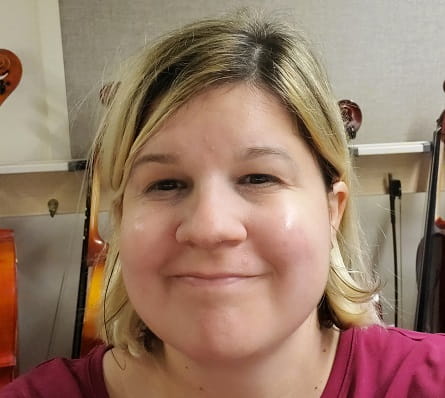Every weekday around 11:00 AM, Alexis tosses her bookbag on a chair and forgets about the red-ink-smattered paper that’s crumbled on the bottom. She swivels her hair up in a ponytail and lets her snugly socked feet remember the cracks in the polished floor. Alexis is in her heart’s home in the middle of the school day, animated by her spirit, her memory, her plans. She is a drama student, and her adventure has just begun.
“I like to think of theater as a teaching tool, instead of a subject,” says Jason Dula, department head of theater arts at Portledge School in Locust Valley, NY. “Kids are learning to be more confident, open, caring, and supportive. Each year, I get about three or four kids who want to go on to a career in acting and three or four who want to minor in theater in college. But the majority of students are just learning to take risks and be vulnerable. They don’t need to worry about grades; they can just learn to open up. Sometimes, they will fall on their faces. Everybody is nervous and uncomfortable at times. Kids will go on college interviews, and they will meet people they want to date. Here, they can disclose themselves the way they are afraid to at home or with their peers. They aren’t judged, and they aren’t concerned about disappointing anybody. They learn to show others who they really are. They practice listening and empathy. I model this as a teacher because I’m not afraid to be silly.”
The social-emotional aspect of drama education has long been cited as one of the main reasons for its continued importance. Students who lack confidence and self-esteem are able to communicate in a warm, inclusive atmosphere. Sometimes, pretending to be someone else can give them the protective screen they need to begin exploring healthy ways of relating to others.
In recent years, educators have begun to highlight the importance of social and emotional well-being as it relates to achievement in core subject areas. Students who feel accepted are a part of a positive environment that increases student engagement and leads to greater success in verbal and even technical disciplines. When students know that it’s okay to make mistakes and keep going, they’re willing to challenge themselves to grow.
Dula has a bachelor of fine arts in performing arts but decided to pursue a graduate degree in educational theater. As a once less-than-interested high school student himself, he knows the difference that a single teacher can make in a dawdling life. In fact, all it took was one chorus instructor who detected the artistry in his voice during a group singing session, and his career on the stage was flung into motion.
“I live for those ‘surprise students,’” he says. “There’s always that ninth-grader who won’t make eye contact on the first day of class. By the time they leave, they have confidence and feel supported. They’re auditioning for plays. Theater class is therapeutic, but it’s not therapy. Kids aren’t getting up and crying for forty minutes. Yet, in a way, they are beginning to face things they haven’t before. They are starting to heal.”
Students who feel supported, heard, and important will have greater success in their relational lives, which will lead to improved academic motivation and fewer setbacks. In a world of chaos, theater arts programs create a finely woven tapestry of hapless turns and vivid dreams that becomes the backdrop for lives in bloom. In short, we are teaching our students how to take their first steps, embrace the process, and accept that each journey is unique and inspiring.
About the Author
 |
Rebekah Yahoves is a string teacher from Long Island, New York. She writes for several local publications and spends her free time with her three adopted children and good books. |
The opinions expressed in Montessori Life are those of the authors and do not necessarily represent the position of AMS.


